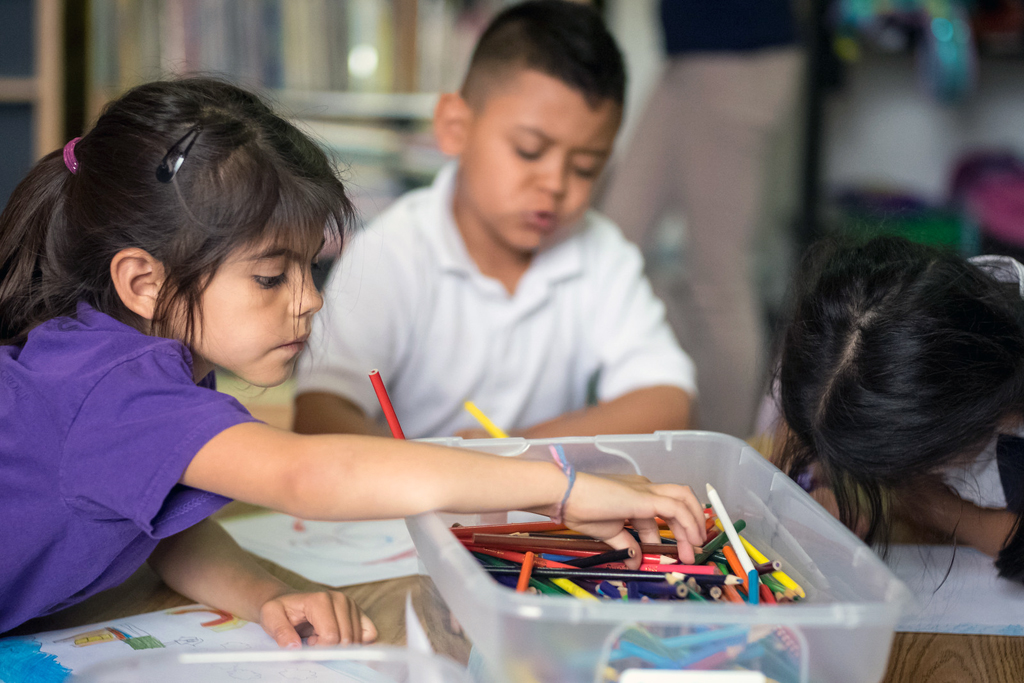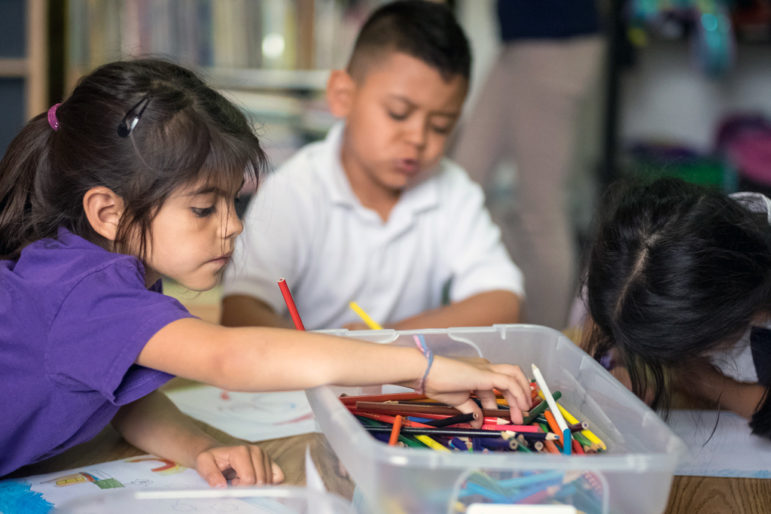
Photo courtesy of OurBridge for Kids
.
One afternoon last winter in Charlotte, North Carolina, school children came running into the ourBRIDGE for Kids after-school program. They were frightened, screaming that an undocumented high school student had been picked up at the bus stop by the U.S. Immigration and Customs Enforcement agency, said Sil Ganzo, founder and executive director of the program.
The event caused an uproar in the community and at ourBRIDGE, which serves 76 immigrant and refugee children from 22 countries now in grades K through 6, Ganzo said.
In Atlanta, just after the presidential election, many kids didn’t show up for the International Community School after-school program, which serves 150 to 180 immigrant and refugee children in grades K through 5.
When the children returned to the program, operations manager Darvis White said, they asked: “Am I going to be deported?”
White and Ganzo say anti-immigrant sentiment expressed during the presidential campaign has stoked fears.
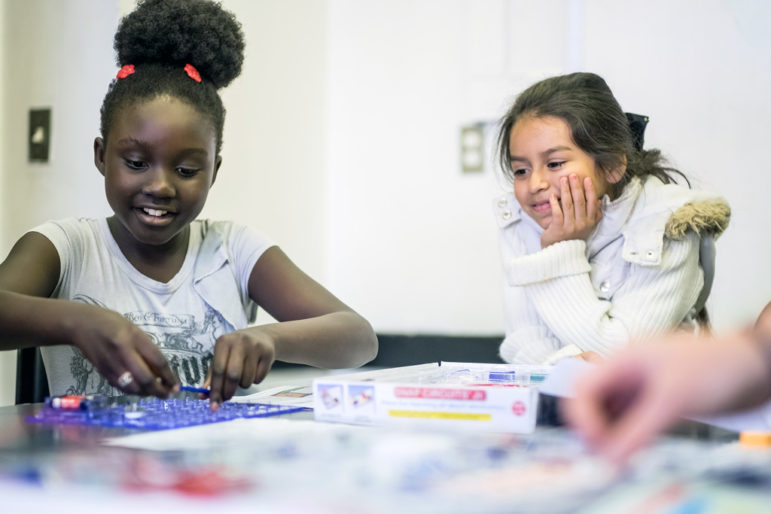
It’s a feeling of being under attack, Ganzo said. “I am worried. We all are.
“Kids who are refugees were told [by other children] at school that if [Donald] Trump becomes president they need to go back home,” she said.
In fact, refugees are admitted into the United States and make their home here after official acceptance. They have fled persecution, war or violence.
Ganzo said everyone who works with the community of immigrants and refugees feels uncertainty right now.
Staff at organizations serving refugees and immigrants have to counter the panic and also the bullying, she said.
OurBridge has group time when the children and staff sit together and tell about their day. It’s a time for kids to practice their English — and also to express their feelings, Ganzo said.
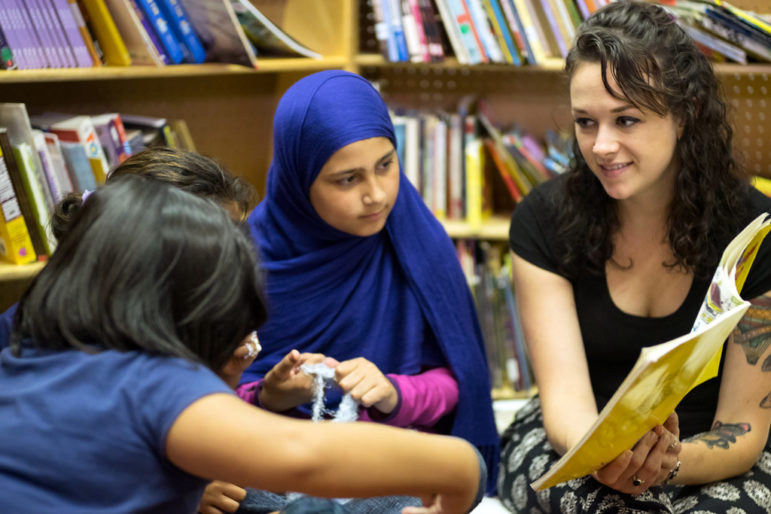
Teachers talk about how in this country there are three branches of government that provide a check on each other. The executive branch — the president — is just one of the three.
They tell the kids that it’s important to become involved in civic life as they grow up, whether it’s in their city, their state or nationally, to make their voice heard.
White said the tone of the public discourse during the last year and a half made it clear that a lot of the students he serves aren’t welcome.
“We definitely have been doing a lot of counseling” in the after-school program, he said.
The International Community School’s after-school program is supported by locally born parent volunteers who are very committed to welcoming immigrants and refugees, he said. In fact, White saw a surge of volunteers after the election.
“That was a huge help,” he said.
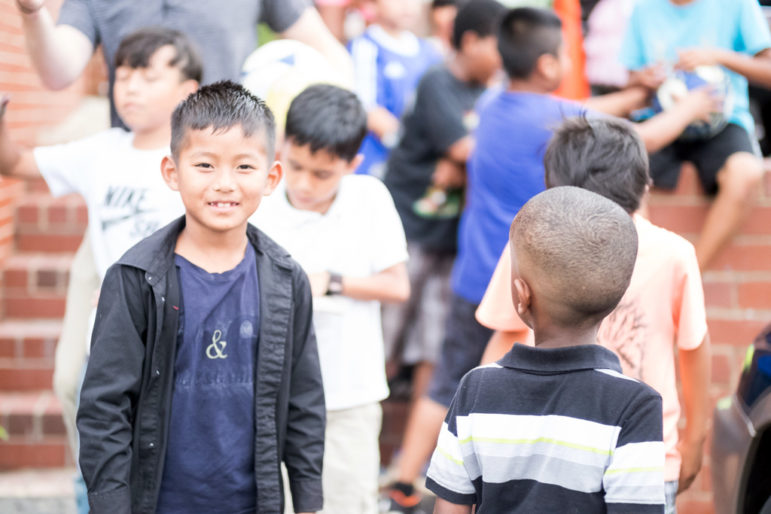
Staff and volunteers reassure the children that they are safe in the supportive environment of the program, which is part of the charter school, he said.
In November, Gina Warner, president and CEO of the National AfterSchool Association, reminded after-school providers of the NAA’s code of ethics in a Nov. 11 blog that pointed out how out-of-school time is about inclusion and community, not politics.
“Each section [in the code] explicitly speaks to our collective and individual responsibility for building relationships with and among children, families, communities and society,” Warner wrote.
Sam Phia, founder and principal of Temescal Associates, and Stacey Daraio, co-director, offered suggestions for youth workers in a blog. Temescal Associates, based in Oakland, California, provides resources and consulting to youth development organizations.
Their suggestions:
- Read what others in the field have written.
- Take steps to address your own stress and be prepared to have difficult conversations with youth.
- Have an ongoing process for and a place where youth can express their concerns.
- Inform yourself on how to best support undocumented youth. The authors suggest websites like National Immigration Justice Center and My (Un) Documented Life.
- Commit to stopping injustice where you see it.
- Be kind and connect.


